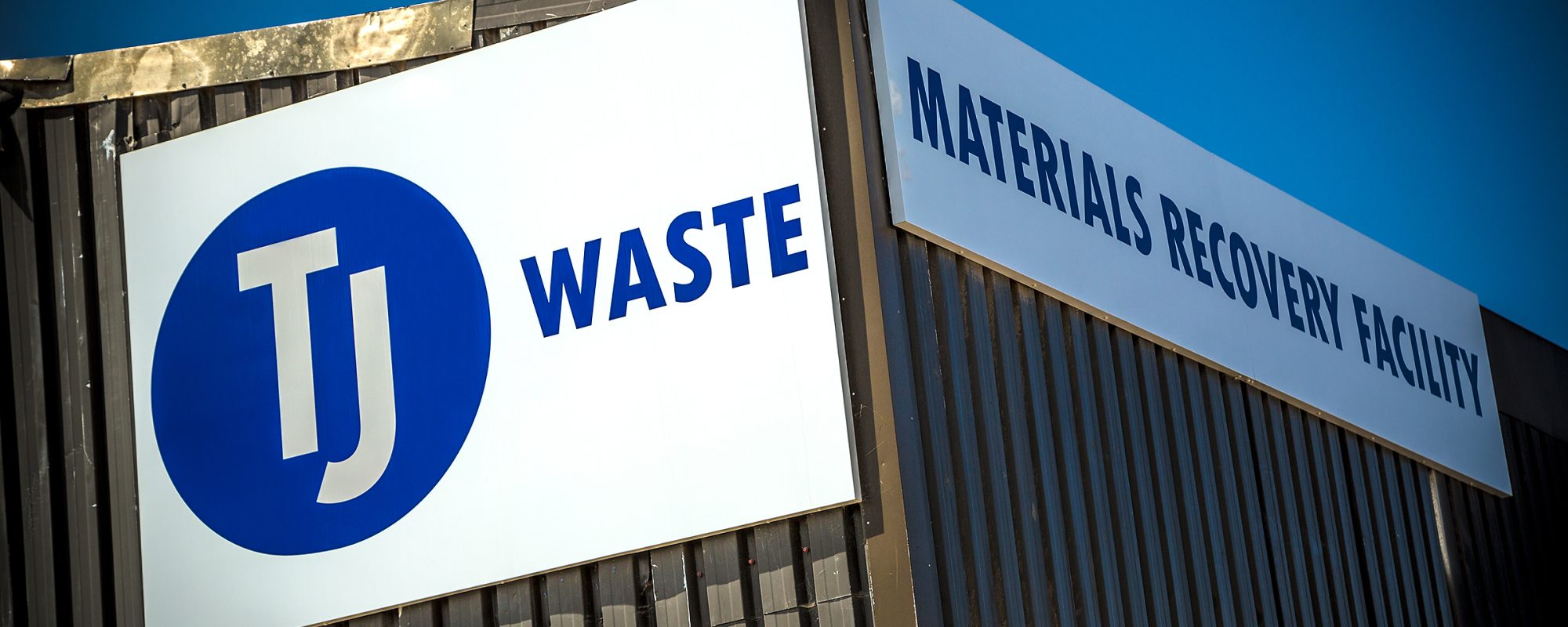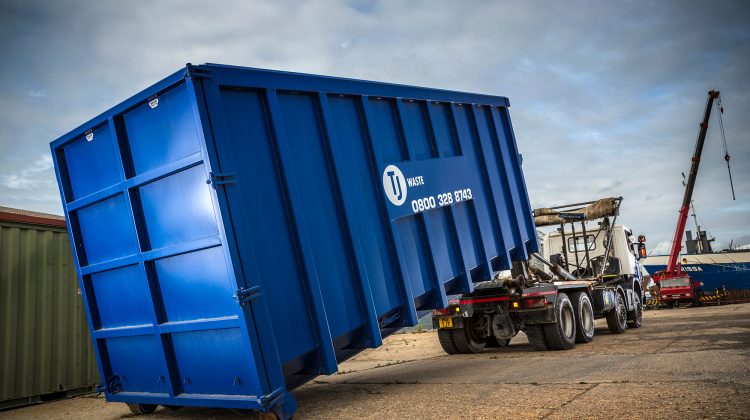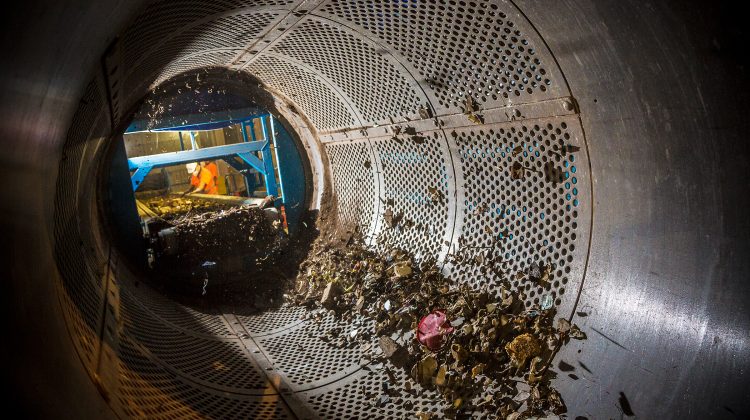The UK is the ninth largest manufacturing nation in the world, with the total value of UK manufacturers’ product sales totalling £396.6 billion in 2019. Manufacturing equates to 11% of the UK’s GVA and employs 2.7 million people.

Recycling has taken place in various forms throughout history, with the Romans recycling bronze coins into statues and the first record of paper recycling taking place in Japan in 1031. Recycling grew out of necessity in the 1900s, particularly during WW1 and WW2 when things were not readily available.
Recycling really started to take off in the 1960s when drinks companies began offering money back for the return of glass bottles. Not long after, drinks started being sold in steel and aluminium cans, which were also recyclable and in some instances could be swapped for money back.
In 1970, the Container Corporation of America launched a design competition to create a symbol for recycled paper. Student Gary Anderson came up with the winning design – the logo featuring three paper arrows that we all know and recognised and that is still used today.
The UK’s first bottle bank came into use in June 1977 in Barnsley, South Yorkshire, with dozens of new bottle banks being opened later the same day throughout South Yorkshire and Oxford. These bottle banks successfully collected 500 tonnes of glass in the first six months.
There are now over 50,000 bottle banks in the UK. Despite this, many people choose not to recycle as stats show that only 50% of our glass ends up being recycled. These figures need to improve as glass does not decompose so it should not be going to landfill. Glass is 100% recyclable and can be used repeatedly without losing quality and it takes less energy to recycle glass than it does to make new glass and also avoids using more raw materials in the process.
In 2003, the Household Waste Recycling Act was passed, which meant that local authorities in England were required to provide every household with a separate collection of at least two types of recyclable materials by 2010. Now our recycling collections include paper, card, plastic bottles, metal tins and cans and aerosols. Some local authorities also offer recycling of other types of plastic in addition to bottles as well as separate glass and garden waste collections.
WRAP – Waste and Resources Action Programme – was established in 2000 to promote sustainable waste management. In 2004 they launched their Recycle Now campaign, which was taken up by 60% of local authorities in the first year.
WRAP’s mission is to accelerate the move to a sustainable, resource-efficient economy by re-inventing how we design, produce and sell products, re-thinking how we use and consume products, and re-defining what is possible through reuse and recycling. WRAP works with governments, businesses and communities to deliver practical solutions to improve resource efficiency. Between 2010 and 2015, WRAP initiatives reduced greenhouse gas emissions by nearly 50 million tonnes in England alone!
TJ processes all materials in line with WRAP protocol. TJ has materials recovery facilities dotted along the south coast in Southampton, Portsmouth and Yapton and also in the Avonmouth area of Bristol. This is where all waste is taken for sorting and onward recycling. TJ recycles up to 100% of the waste that comes through their doors, demonstrating their commitment to diverting waste from landfill.
TJ also has three inert recycling facilities in Chichester, Bordon and Ringwood. TJ takes all inert waste (concrete, brick rubble, ceramics) and recycles it into their own recycled aggregate Type 1 Reclamix.
TJ works in partnership with two local companies to help divert plastic ice cream tubs from landfill and direct them into the recycling process. One of TJ’s clients are ice cream manufacturers and TJ organises for their unwanted tubs to be recycled into a new product – pellets – which will then be moulded into new plastic products. The latest equipment for recycling plastic materials is used in this recycling process to ensure that the highest quality products are maintained.
Local authorities can only recycle the materials that the facilities are capable of recycling, so improvements to recycling centres need to be made to enable more materials to be accepted. It is hopeful that in the coming years, new technology will be developed to make recycling additional materials possible.
One idea is to move towards a 100% closed-loop recycling system where a recyclable product is transformed back into its original form. So a plastic bottle would be remade into a plastic bottle or an item of equal value many times before it is disposed of. This idea presents challenges though. For example, just separating mixed plastics is difficult and expensive and even a small amount of the wrong type of plastic can cause an entire batch to become contaminated.
Recycling is one way of diverting waste from landfill and creating Energy from Waste (EfW) is another. Refuse Derived Fuel (RDF) is incinerated to create EfW. The UK is currently unable to keep up with its own demand for this process, so up to 50% of our RDF is currently exported to The Netherlands.
TJ Waste is in the conceptual stages of developing a turnkey waste processing facility which will combine cutting-edge technology with our in-house processes to recover resources from a range of waste types and sources.
The potential incorporation of final treatment technologies such as pyrolysis, anaerobic digestion and biomass will add value for our customers, create further jobs, reduce the need for transporting segregated waste by road and, most importantly, reduce the reliance on conventional energy recovery through waste incineration. Watch this space!
Find out where TJ’s materials recovery facilities are and discover the waste and recycling services we can offer your business.

The UK is the ninth largest manufacturing nation in the world, with the total value of UK manufacturers’ product sales totalling £396.6 billion in 2019. Manufacturing equates to 11% of the UK’s GVA and employs 2.7 million people.

With the UK’s population continuing to grow, the waste industry is under increasing pressure, and the need for innovative, sustainable solutions has never been greater. From staggering statistics to surprising insights, check out our 10 shocking waste facts that might just change the way you think about rubbish.

Barney joined TJ Waste in February as an Operations Administrator and is enjoying learning all about the waste industry. Outside of work Barney is an avid football fan and plays five-a-side once a week. He also enjoys live music, Formula 1 and MotoGP.
Change your stored postcode to update prices for your location.